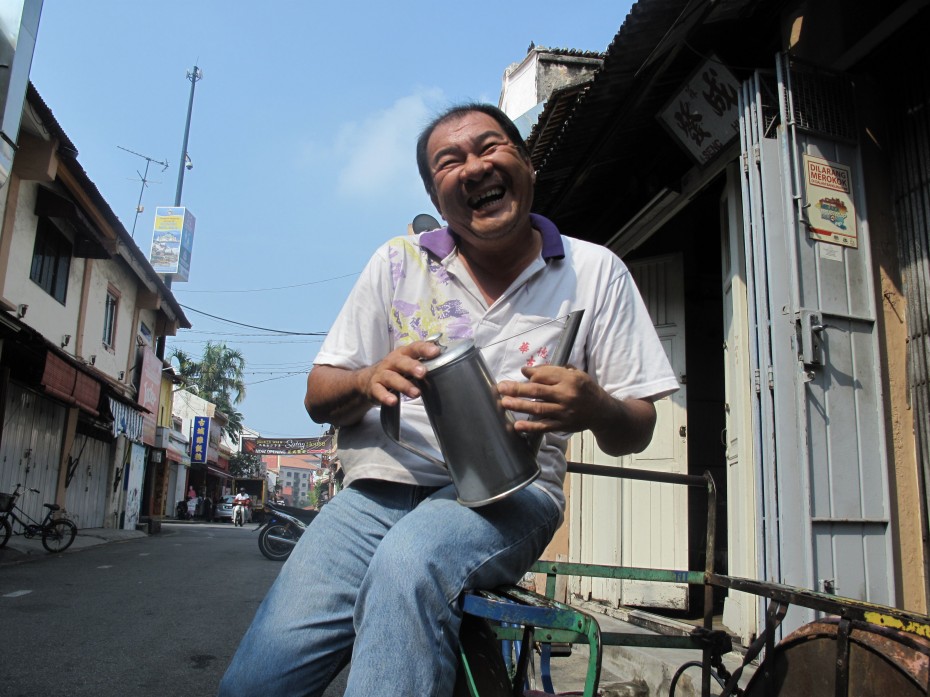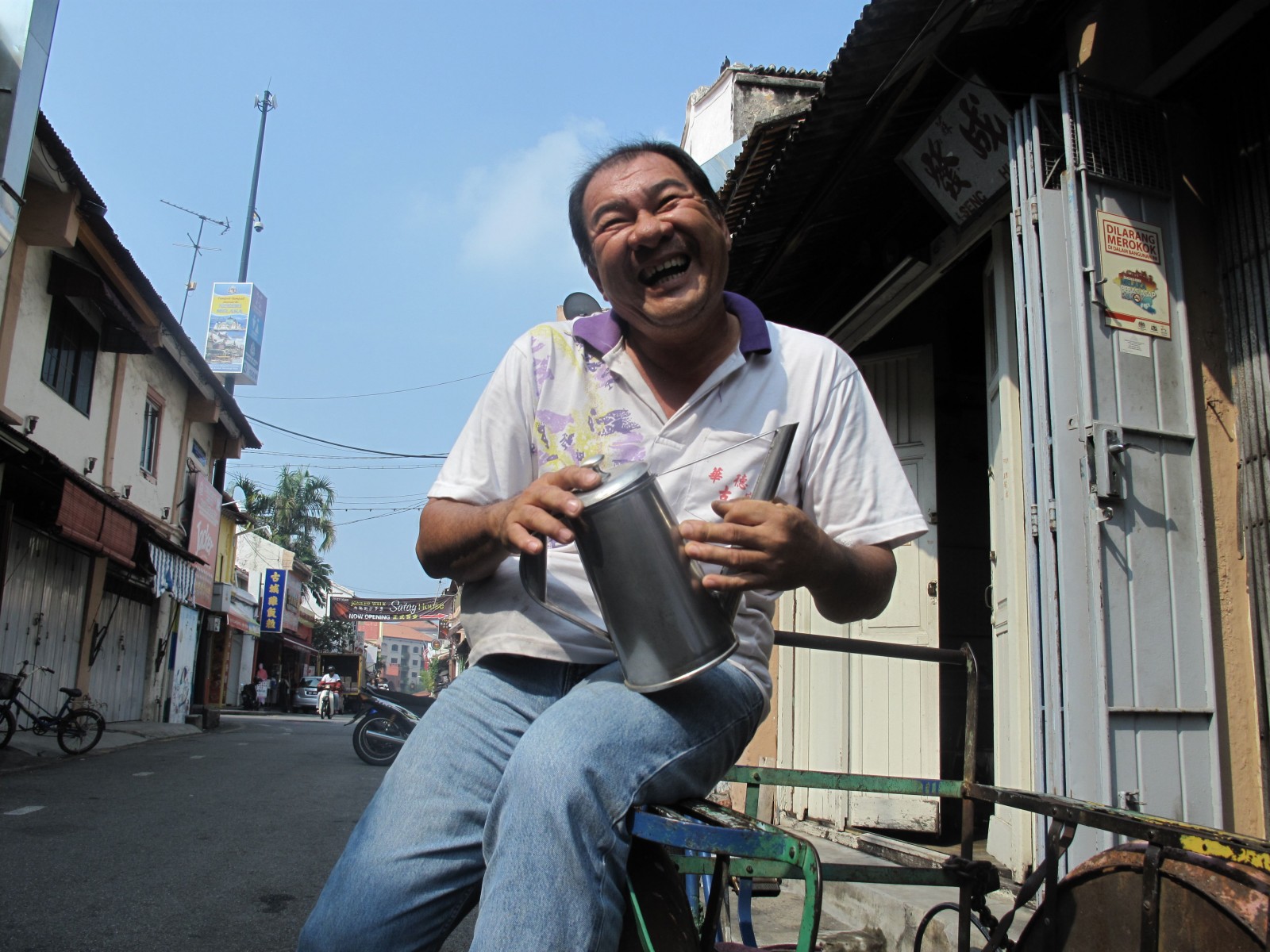JONKER Street isn’t quite what it used to be for Lee Kiang Sim, 52.
When Lee started his apprenticeship as a tinsmith nearly 40 years ago, the street was full of businesses by skilled craftsmen such as goldsmiths, blacksmiths, tailors and watchmakers. It was alive with tradition and culture.
“As you can see, they’re mostly gone now. They’ve been replaced mostly by souvenir shops,” said the jovial Lee. “There’s very little room for businesses like ours these days.”
Lee’s shop is tucked away in a quiet alley off Jonker Street, where his impressive array of handmade and custom-made metalware – from large food steamers to tiny safeboxes – is laid out for display, as are his tools.

They might not appear impressive at first glance, but tinsmith Lee Kiang Sim’s metalwork is the product of amazingly skilled craftsmanship. He has worked on Jalan Hang Kasturi, off Jonker Street, as a tinsmith for nearly 40 years.
While the fading away of trades like his might seem to be a natural progression to most people, it cannot be easy for the likes of Lee, who has dedicated his entire life to keeping the family business alive – and living up to his father’s reputation as a skilled tinsmith.
And for that, he started his apprenticeship at the age of 16.
“With skilled trades like ours, you can’t immediately start doing the difficult stuff, like heating and bending metal. I spent the first two years mostly cleaning tools, sweeping floors and cleaning up the workshop. You need to learn discipine, and be able to handle all the different aspects of the business,” he said.
The apprenticeship clearly worked, because Lee’s skills are still as good as ever. He can make pretty much anything you need, and you can bet that it will be hand-made to perfection.
A tin jug, for example (the ones with the long, thin spout they use at Chinese kopitiam to make coffee or tea), might look simple enough; but Lee has to cut and fold the metal so the lid will fit the jug perfectly.
“We used to do all this without any machines. We didn’t even know the mathematical formulas we use these days to calculate things like circumference,” he said.
None of Lee’s children are interested in learning those skills, though, which is disappointing for him not only because the tradition will be lost, but also because it can be a very profitable business.

Happy camper: Tinsmith Lee Kiang Sim picked up the family trade almost 40 years ago, and he is one of the few remaining tinsmiths in the Jonker Street area.
Most of his customers these days are local hawkers who need custom-made kitchen equipment which they can’t get anywhere else. “You can probably make these things cheaper in a factory, but you’d have to order in bulk. They’re not going to make just one or two pieces for you! And as you can see, our craftsmanship is very good.”
Ultimately, said Lee, one of the most important things in life is balance, and young people need to find a balance between professional knowledge and life skills. “What’s the point of having a university degree if you can’t change a lightbulb?” he said with a laugh.
And when it comes to the balance between modernisation and tradition on Jonker, Lee said he’s all for improving things to bring in more tourists – as long as it doesn’t take away the soul of the street. In fact, he’ll even allow tourists – and any young Malaysians curious about his craft – to take a look inside his workshop.
So, the next time you’re in Malacca, make sure you take Lee up on the offer.



Tell us what you think!